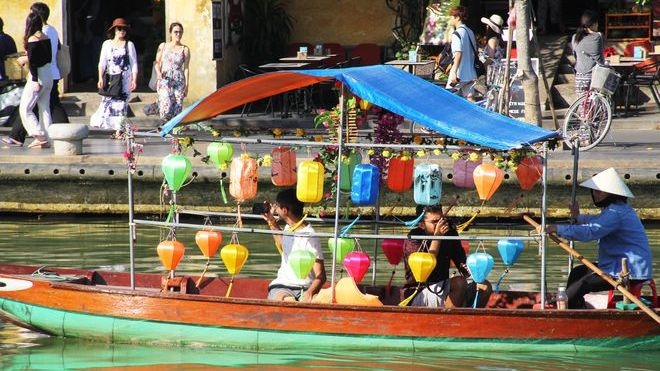A month ago, the country’s tourism sector made preparations for the tourism “season” during in advance of the Tet (Lunar New Year) holiday and spring of 2021, with the hope of recovering somewhat following a year of heavy losses due to the COVID-19 pandemic.

The tourism sector sufferd heavy losses due to COVID-19 pandemic.
Many new tourism products were launched and promotional campaigns implemented. However, the resurgence of the epidemic caused the cancellation of many tours. The sector continues to be suffering from a failed "season".
After each outbreak of the epidemic was controlled, the tourism sector could not restart like many other types of production and services could. In order to attract customers, localities, travel agencies and carriers had to stimulate demand with the development of new tourism products and the implementation of promotional campaigns and discounts. These activities require major investment. Unfortunately, whenever the number of tourists increased again and the new tourism products were launched, the epidemic “came back”. The investment and efforts to implement the stimulus campaigns have been fruitless as a result. For example, after the first wave of COVID-19 was controlled successfully, domestic tourism activities were active again for about two months. In late July 2020, the epidemic reappeared with its epicenter in Da Nang. The whole tourism sector came to a standstill. When the second wave of the epidemic had just calmed down at the end of 2020, localities and enterprises poured money in to develop and promote products, especially for Tet holiday and the spring season. However, many localities have since welcomed the third wave of the epidemic.
Among all economic sectors, tourism is one of those suffering the heaviest losses during these outbreaks. A series of travel enterprises and accommodation establishments have had to close. Vehicles from tourist transport businesses are stood still on their yards. Nearly 1,300 travel enterprises in Hanoi (90%) had to close or postpone their operations in 2020. The accommodation sector has seen 16,000 unemployed workers and13,000 labourers having to work sporadically, as well as 5,700 employees whose contracts have been terminated.
Despite these difficulties, localities and enterprises have spent money investing in and promoting tourism products and they then saw failure twice. The third wave of the epidemic has made most tourism businesses exhausted. In the short term, tourism’s stagnation has caused monetary losses for the enterprises, low company revenue and worker incomes. However, due to the tourism sector’s crisis, many workers have had to find jobs in other professions. Once tourism recovers, the risk of a human resource crisis, especially in terms of high-quality and well-trained human resources will become a great problem. In addition, many enterprises have dissolved, leading to a decline in capacity to meet the needs of the entire tourism system. In theory, if demand increases, new enterprises will have to be established. However, by then, there will not remain many businesses with experience and expertise.
In 2020, the Government implemented many measures to support the tourism sector. However, measures such as the extension of value-added tax due-dates and reductions in the price of electricity have since expired. Several other measures including the deferral of social insurance payments for enterprises that laid off more than 50% of their employees have not brought practical results as they in reality wanted to retain their workers.
Recently, many localities, such as the Ho Chi Minh City Tourism Association, as well as businesses have proposed solutions to support the tourism sector. At the beginning of February 2021, businesses in Ho Chi Minh city proposeda an exemption or discount of 50% on VAT for tourism enterprises until the end of 2021; an exemption on land rental for tourism businesses during 2021 and 2022; favourable conditions for enterprises to access preferential loan packages with interest rates of 0%; an extension of the due-dates for the payment of bank debts; and the reduction of electricity prices for restaurants and hotels. The proposal from the Ho Chi Minh City Tourism Association is also the common voice of many tourism businesses across the country. The Government and localities should consider urgent support measures. If not, the tourism sector not only faces immediate difficulties but also an overall decline in its competitiveness in the long term. Accordingly, the path to return tourism as a spearhead economic sector is seeming more and more elongated.